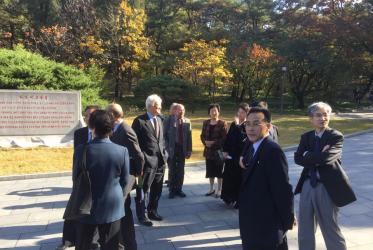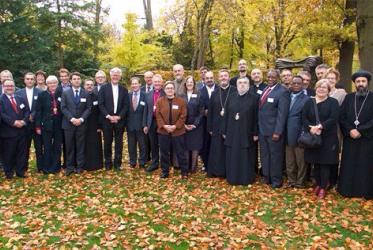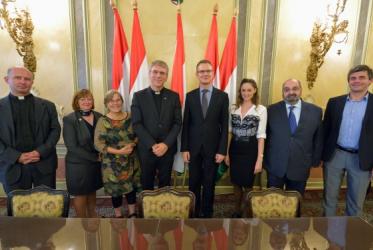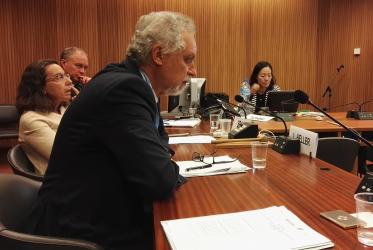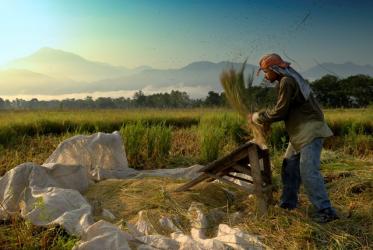Displaying 541 - 560 of 716
02 December 2015
Patent agreement welcomed as step to improve HIV treatment
30 November 2015
UN Climate summit results vital for world’s future
26 November 2015
Land rights focus of panel discussion
17 November 2015
Tveit on the refugee situation: Churches can make a difference
05 November 2015
“European solidarity must be strengthened”
29 October 2015
Local and global work saves lives
22 October 2015
German pilgrims underline the call for climate justice
14 October 2015
No place for hunger in a world of abundance
02 October 2015
The churches walk with refugees in Hungary
30 September 2015
Tveit: We need an international solution to the refugee crisis
29 September 2015
Helping refugees by thinking beyond the current crisis
21 September 2015
WCC engages UN debate on right to water
16 September 2015
Everyone urged to join Zero Hunger Challenge
29 June 2015


